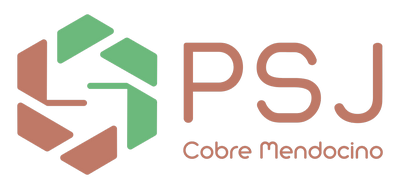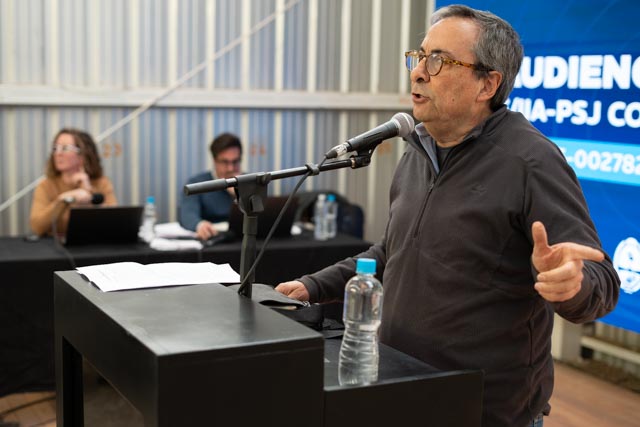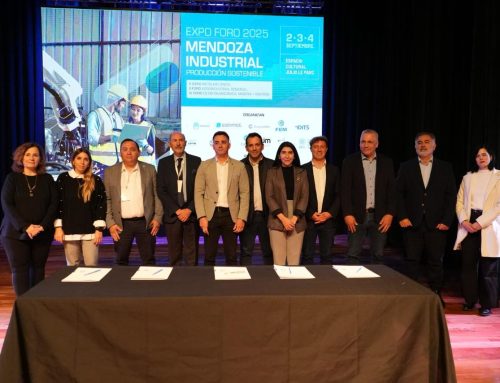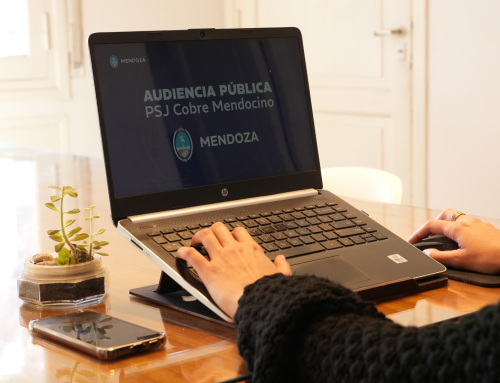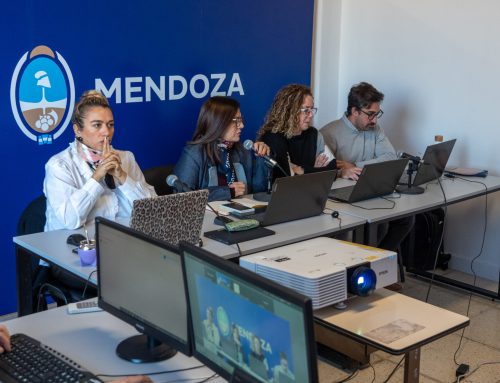With broad citizen participation from different parts of the province and a strong presence from the Uspallata community, the in-person stage came to a close. Starting this Friday, the virtual stage of interventions will begin.
This Thursday marked the conclusion of the 6th day of the Public Hearing for PSJ Cobre Mendocino, officially ending the in-person stage of this participatory process. With wide citizen involvement in a democratic atmosphere of respect and commitment, 70% of the speakers expressed support for the development of the PSJ Cobre Mendocino Project, emphasizing the need for active community participation in monitoring and the importance of generating development and quality jobs in the region.
Beginning this Friday, August 8, at 9:00 AM, the virtual stage of interventions will open, further expanding the accessibility and reach of the Hearing.
An open project with active listening
Throughout this participatory process, the PSJ Cobre Mendocino team, together with authorities and investors, were present to hear directly from the community—their concerns, hopes, demands, doubts, and contributions.
The Relationship and Communication team systematically recorded these contributions in order to address them, provide concrete responses, and continue building, together with the community, a more transparent, participatory, and responsible project.
Main concerns raised
-
Environmental protection and water resources: The community wants assurances that water will be used responsibly and that clear mechanisms will be in place to monitor and safeguard this vital resource.
-
Reagents and mining process: Speakers showed interest in the technical details of the mining process and in the measures to be taken to avoid any type of contamination.
-
Biodiversity: Concerns about flora and fauna, along with requests for independent reports and third-party studies.
-
Project continuity guarantees: Fears stemming from previous mining projects in Mendoza that failed to materialize or were abandoned. These experiences created distrust and prompted calls for guarantees of continuity.
Main contributions and positive assessments
-
Job creation and local training: The possibility of genuine employment for young people in Uspallata was valued, and PSJ’s training programs in mining-related trades were highlighted. There was also a request to ensure prioritization of local labor and regional entrepreneurs.
-
Territorial development: Many speakers expressed support for the project, emphasizing its potential to boost the local economy and create new opportunities in Uspallata. Its contribution to diversifying Mendoza’s productive matrix—by adding mining alongside agriculture, tourism, and industry—was especially valued. The project’s potential positive impact on key infrastructure such as roads, basic services, and connectivity was also recognized.
-
Commitment to modern mining: The project’s compliance with Law 7722 and the use of mechanical flotation were highlighted. Its adherence to international sustainability standards was positively noted.
-
Conditional support: Many expressed their backing but made it clear that support is contingent on strict compliance with commitments made. They emphasized the need for transparency, effective environmental monitoring, and the delivery of real benefits to the local community.
Recurring cross-cutting themes
In summary, the recurring cross-cutting issues in the presentations were:
-
A call for active community participation in environmental monitoring.
-
The importance of maintaining permanent channels of dialogue and transparency.
-
A call to protect the natural environment as part of Uspallata’s heritage.
Virtual stage begins this Friday
As previously announced, the Public Hearing will continue virtually starting Friday, August 8, at 9:00 AM via Zoom.
During this stage, all those registered as virtual speakers will be able to present, while those who registered as virtual attendees will be able to participate as listeners.
Interventions will follow the chronological order of registration, as published on the website of the Ministry of Energy and Environment. Presentations will continue in the following days until all registered participants have spoken, ensuring a process that guarantees pluralism, transparency, and effective citizen participation.

